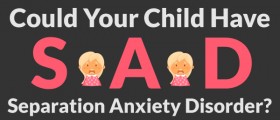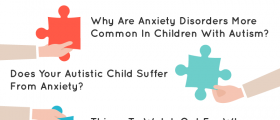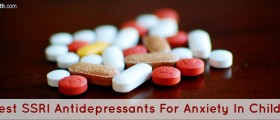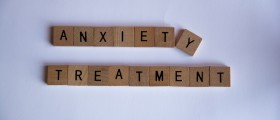
What is separation anxiety disorder?
There are many people who have heard of separation anxiety but are unsure of what exactly it is. However, before people can understand this disorder it is important that they first get to know just how difficult it is for the infants and toddlers to get separated from their parents or caretakers and just how much trouble they have with strangers. The most common sign that is seen in infants when they are approached by a stranger is crying. This is considered to be normal and it is the way of showing that the baby can distinguish the parents from strangers. According to the experts, stranger anxiety lasts from the time the baby is 8 months old until he or she is 2 years old.Separation anxiety in children is also a natural part of growing up. Once the baby is about 7 months old and realizes that the parents or caregivers do not disappear once they are out of sight, the true attachment is developed. This anxiety is the strongest when the child is 10 to 18 months old and it subsides when the child reaches 3 years of age.A child whose parents are anxious has a greater chance of being anxious as well.
Signs and symptoms of anxiety disorder
Some of the most common signs are repeated anxiety about something bad happening to loved ones or losing them, strong concern about getting kidnapped or lost, hesitancy that repeats when a child needs to go to day care or school or simply to be alone and without the loved ones, refusal to go to sleep at night without being physically close to the loved ones and recurrent physical complaints like headaches, once the separation either occurs or is expected.In order for the child to be diagnosed with separation anxiety, at least three of the signs must be present for about a month.People should not mix social phobia with separation anxiety.
Treatment for separation anxiety
In cases where the separation anxiety disorder is a mild one, experts advise counseling and not medication. However, if the counseling does not help or the child is suffering from severe symptoms, there is need for a combination of approaches. Experts agree that the three most effective treatments are psychotherapy, medication and parent counseling.Behavioral modification therapy is also an option and it directly addresses the behavioral symptoms of this disorder.Parents should know that cognitive therapy is also considered as one of the treatment options in these cases.

















Your thoughts on this
Loading...